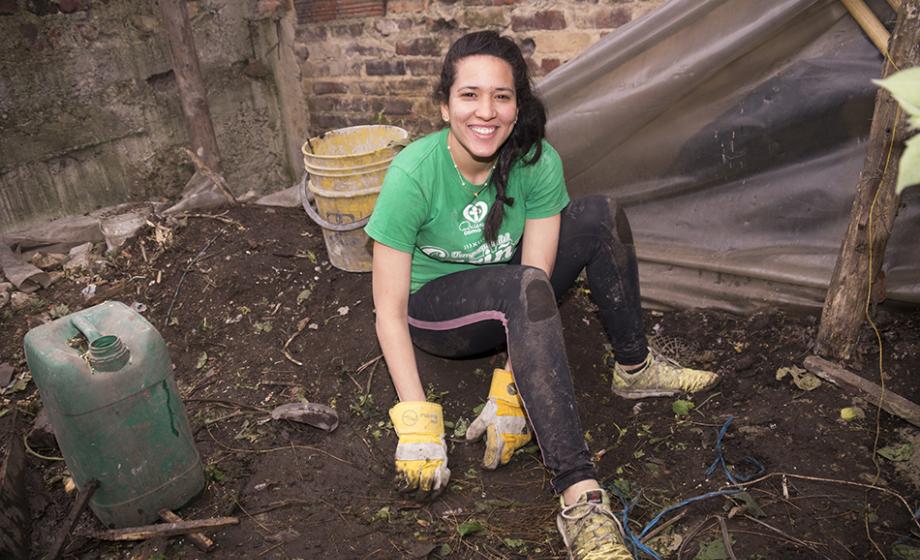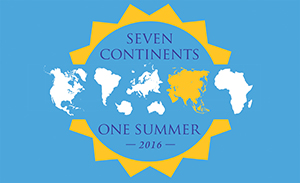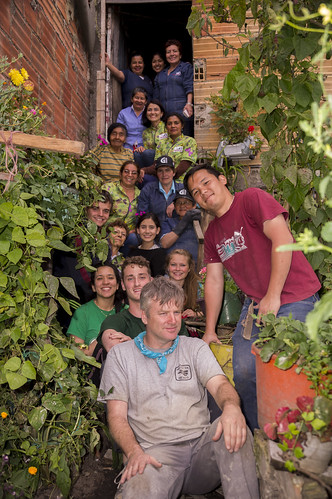Learning from the ‘inspiring’ grandmothers of Bogotá

Carla Lee Perez ’19 traveled to Colombia recently as part of a Clark University social entrepreneurship project to assist the Fundación Mujeres Empresarias Marie Poussepin (or Marie Poussepin Women Entrepreneurs Foundation), a nongovernmental organization (NGO) based in Bogotá. The foundation helps women develop urban farms and sell their products to support their families.
This story is part of our 7 Continents, 1 Summer series, which highlights the interesting work that Clark students, faculty, alumni and staff are doing all over the world. Have a great story of your own to share? Let us know and we’ll be in touch.
Lee Perez, an international development and social change major, worked on the project with her professor, John Dobson, associate professor of practice in Clark’s Innovation and Entrepreneurship program, and three other Clark students. Eight students and two faculty members from Pontifical Javeriana University also participated.
“In recent years these women have experienced several obstacles that have limited the amount of products they sell and their profits,” says Lee Perez, who was completing a Clark LEEP project. “Through our international social entrepreneurship project, we aimed to use our entrepreneurial skills to develop a business plan and a strategy to improve these women’s positions within the local market. With the guidance of Professor John Dobson, we worked in teams to do a market analysis and develop our own ideas on what we thought would worked best for these women.”
The students also helped one of the foundation’s newest members, Señora Zelaida, build an urban garden and workspace.
In these excerpts from a blog post, Lee Perez describes her experience:
“Our first days consisted of clearing out the workspace and working with Señora Zelaida to create a collective vision of what we would do.
“Engaging with Señora Zelaida and the rest of the women of the organization became a critical point of our project. We worked with the women to provide them with what they needed. The project became a part of all of those involved, integrating several backgrounds, ideas and experiences. The interdisciplinary character of this project made it, in my perspective, very successful.
“Engaging with these women was — more than anything — incredibly inspiring. Many of them had come from difficult backgrounds of poverty and violence. Most of them were also heads of households or supporting other family members. Their strength and hard work showed their desire to improve their conditions and to help the people around them. The urban gardens and the foundation had become not only a mechanism to improve their economic condition, but a community and an experience they enjoyed sharing.
“Our intention with this project was to find a way to increase their income, productivity and overall economic condition. However, we understood that this was not their only motivation and that their experience with urban agriculture was far beyond economics.
“They are working toward their collective goals and dreams. What we gave them was just a little in contrast with all that they have accomplished.”




